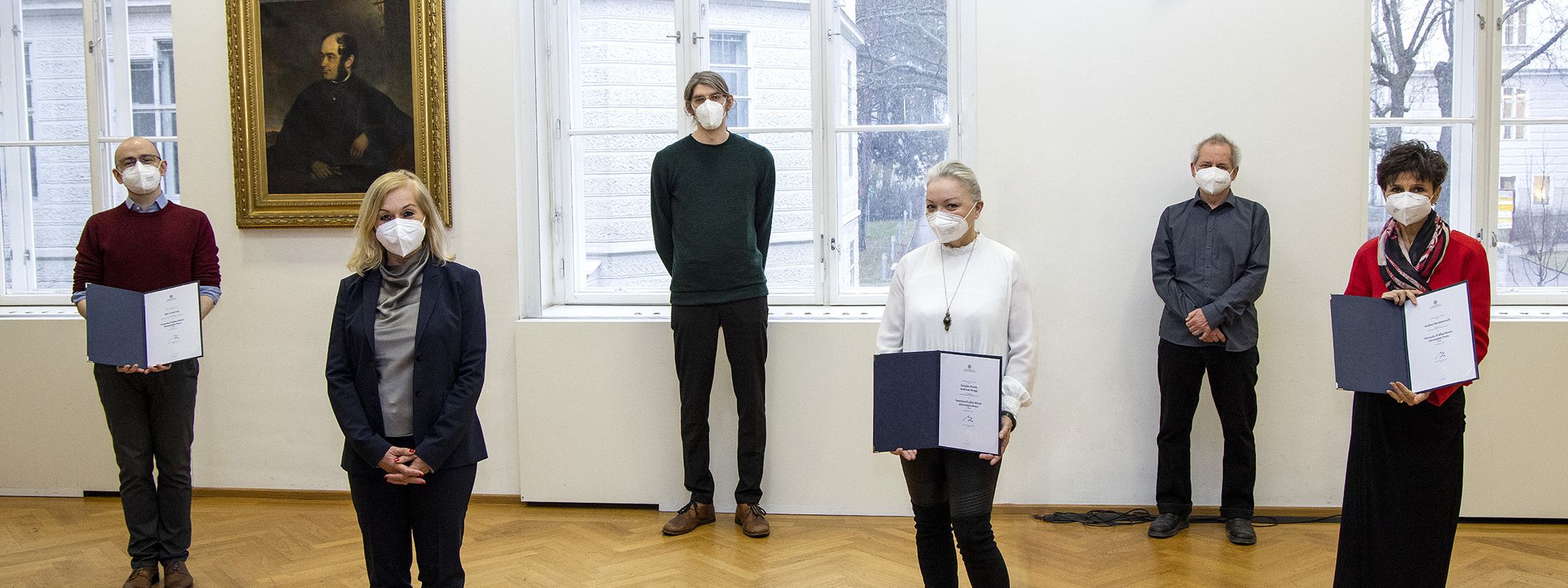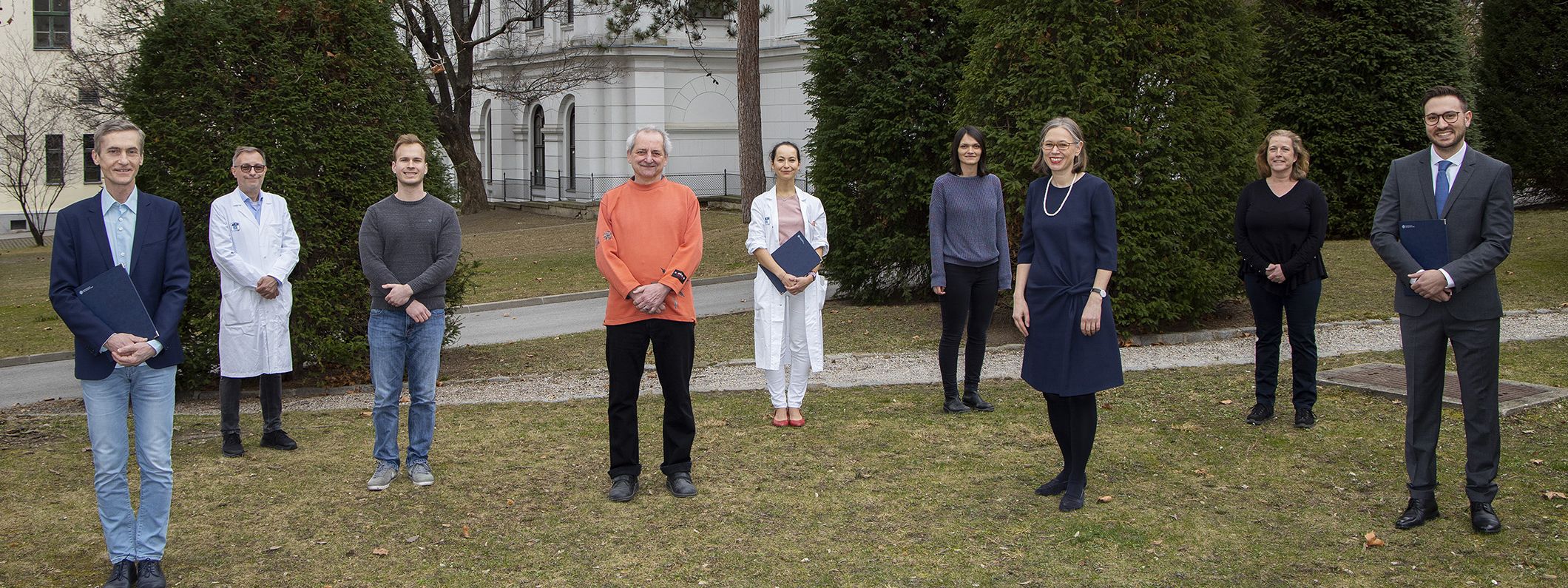
(Vienna, 12 March 2021) MedUni Vienna honoured this year's winners of the Veronika Fialka-Moser Diversity Prizes. The prize-winners were announced during the Day of the Medical University of Vienna.
The Medical University of Vienna awards the Veronika Fialka-Moser Diversity Prize to consciously encourage the discussion about diversity within its establishment. The prize recognises contributions in this area and raises awareness about the issue of diversity. It is named after Veronika Fialka-Moser, Professor of Physical Medicine, in recognition of her many years of service in the field of Diversity Management at MedUni Vienna.
This year's prizes were awarded in recognition of outstanding contributions in the categories of Research and Teaching. Prize money of €2,000 is awarded in each category. MedUni Vienna employees, graduates and students were able to submit papers.
Prize-winners in the Research category
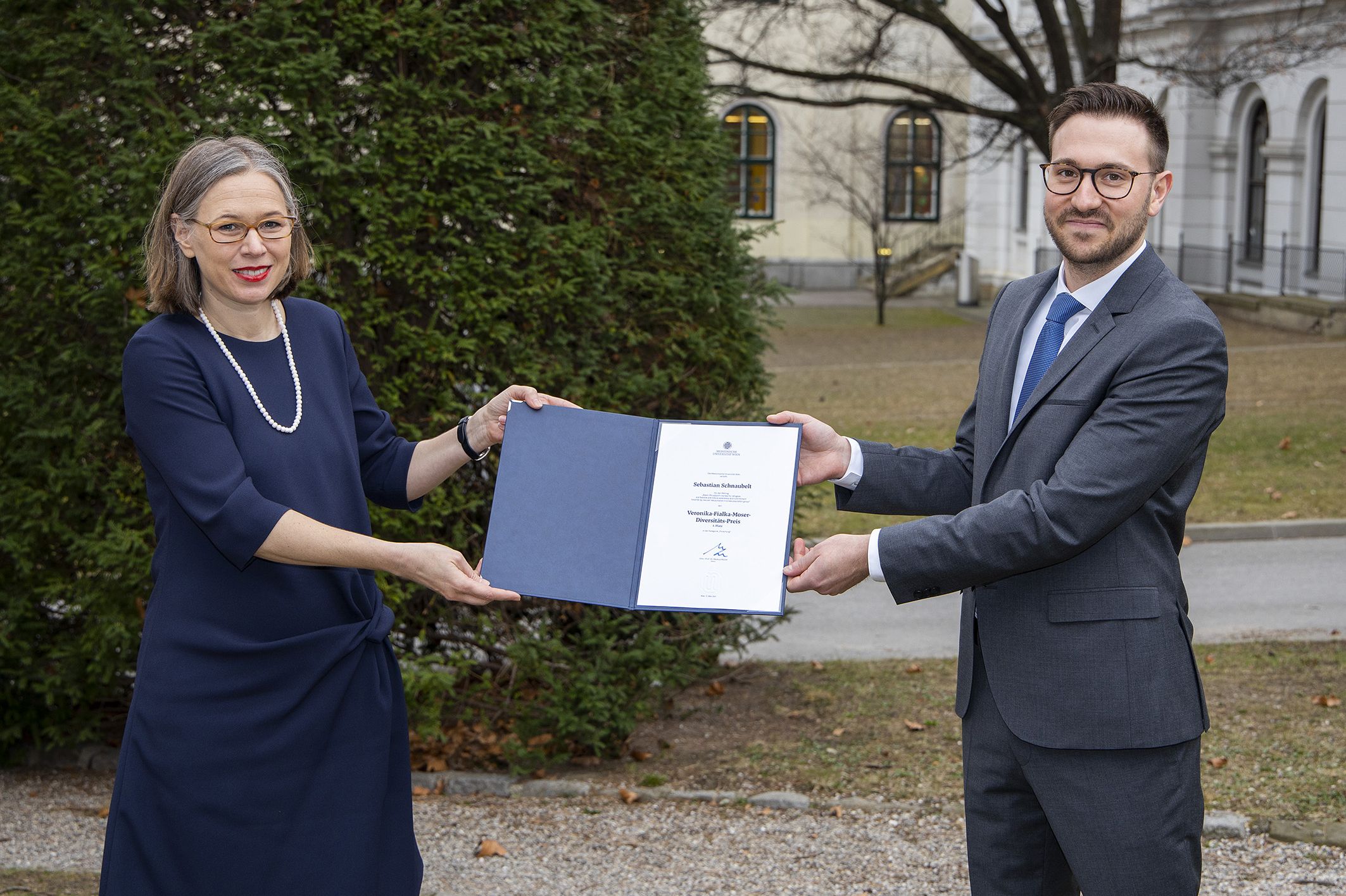
First place: Sebastian Schnaubelt
Basic life support courses for refugees are feasible and induce awareness and commitment towards lay rescuer resuscitation in a new population group
This research project relates to the planning, setting up and running of basic life support (resuscitation) courses for refugees and scientific monitoring and evaluation of the same. An association was set up, members attracted and trained, contact was established with the respective (political or otherwise) decision-makers and a scientific concept was developed. Finally, approximately 200 refugees (the majority of whom were in reception centres) were trained and scientifically assessed. By recruiting native speakers of the different languages and advisers on the different cultures and countries of origin, it was possible to convey the content and accurately evaluate questionnaires and interviews for the purpose of scientific monitoring. The main aims of the research project were to establish the feasibility of resuscitation courses on the one hand and to map their lasting impact on the population group of refugees in particular and the Austrian population in general. It is hoped that the planned publication of the results provides decision-makers on all levels with a basis for establishing the teaching of health issues (and in particular the important skill of resuscitation) in the group of refugees and migrants. This will not only help the group as a whole to have more self-confidence and problem solving skills but might also help with their integration into the general population (keyword: refugee saves the life of a collapsed passer-by).
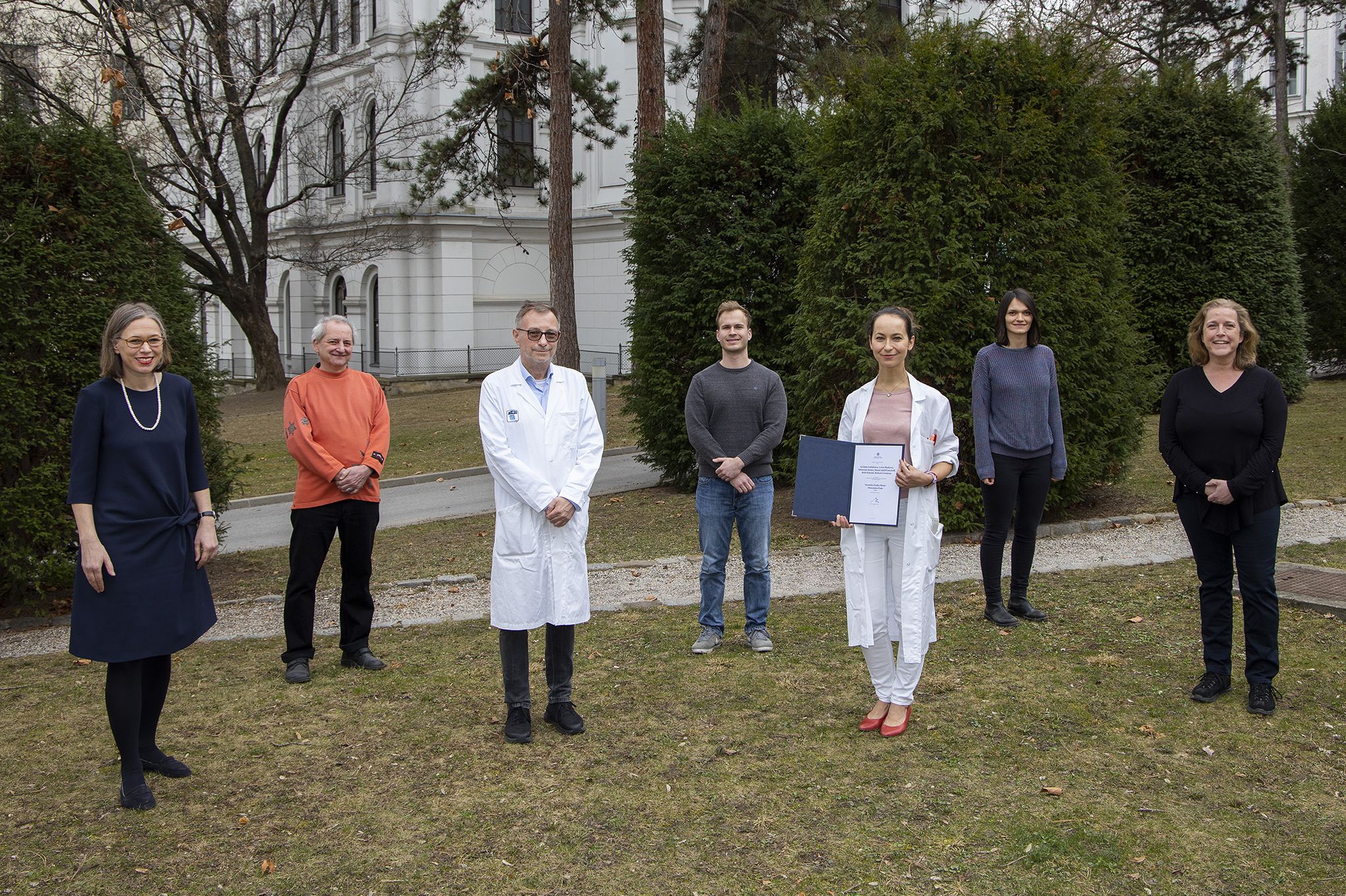
Second place ex aequo: Galateja Jordakieva, Lovro Markovic, Sebastian Jensen, Maren Jeleff-Entscheff, Ruth Kutalek, Richard Crevenna
Risk factors and working conditions for healthcare staff in the COVID-19 epidemic
This project concentrates on "less visible" Health Care Workers (HCW), who work in the healthcare system or private facilities treating COVID-19 patients and have underlying conditions (e.g., cardiovascular disease, respiratory diseases, diabetes) identified as risk factors for severe disease. Particularly domestic staff, e.g. cleaning staff and service assistants, have been considered as "less visible" staff within the hospital setting. Such workers are a classic example of a "blind spot" in the healthcare system, as well as during the COVID-19 pandemic. Language barriers and lack of access to digital communication channels (as a rule they do not have any computer or Internet access or personal work email, etc.) make it difficult to reach these important cohorts. The preliminary findings of the study indicate that members of the cleaning and service staff do not have a significantly higher risk of SARS-CoV-2 infection than the general population, so long as they were not required to work directly with patients and/or the recommended safety procedures were followed. Nevertheless, existing misinformation about SARS-CoV-2 and COVID-19, especially at the start of the pandemic, pointed to the need for occupational health and/or medical training. This offering would not only inform domestic staff about their important role in the running of the hospital, reduce their infection risk and increase adherence to the recommended PPE protocols (through a better understanding of the correct way to don/doff this equipment and its specific purpose) but also reduce any fears and misinformation that could be passed on in their private lives, thereby helping in some cases to further educate difficult-to-reach (educational) levels of society.
Another important aspect for the study team was to offer these participants, particularly in the uncertain times during the first few months of the COVID-19 pandemic, the opportunity to talk to medical colleagues about their fears and to ask any outstanding questions about SARS-CoV-2 and COVID-19.
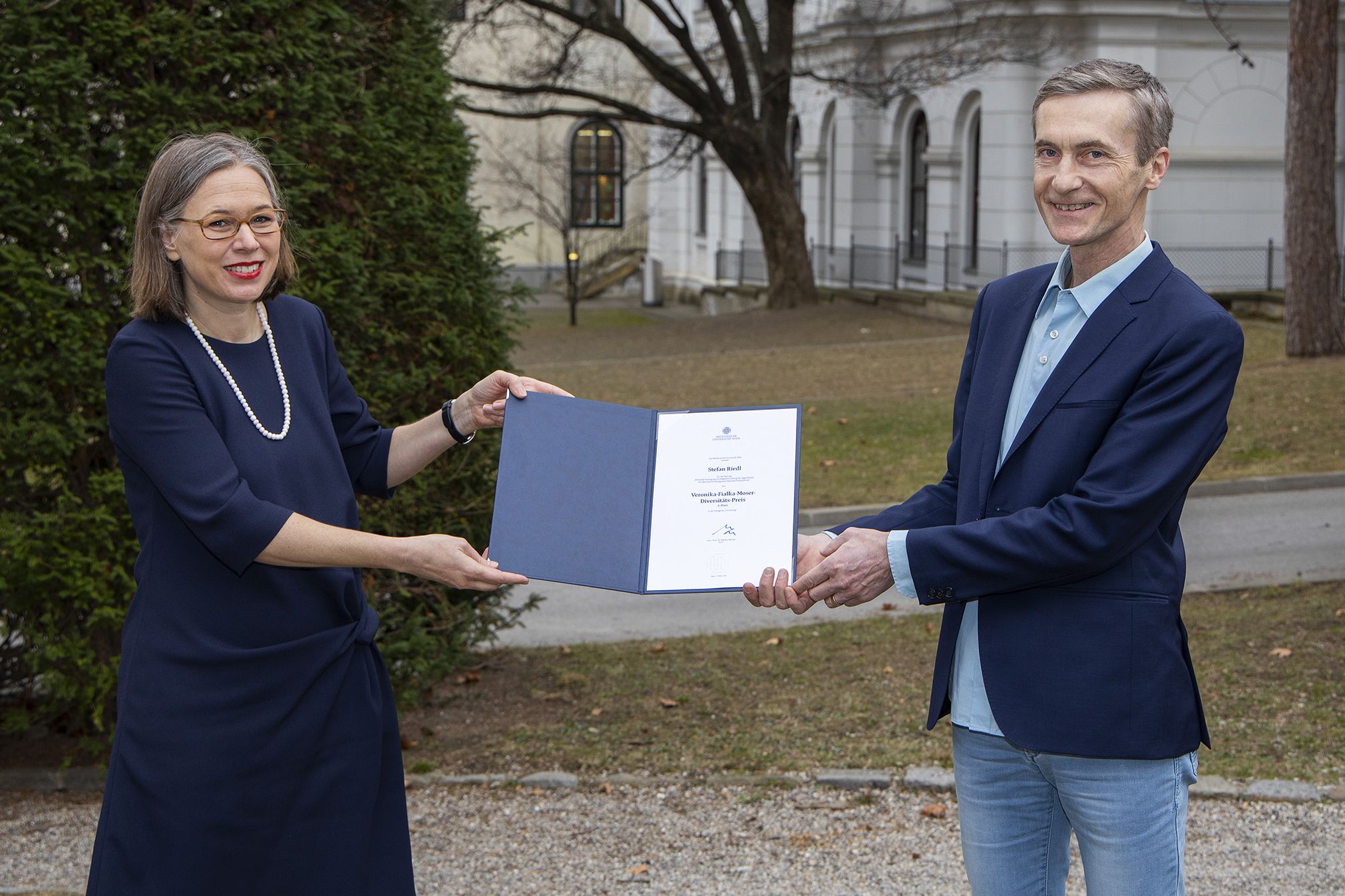
Second place ex aequo: Stefan Riedl
Clinical care and accompanying research for adolescents with gender dysphoria
Stefan Riedl has headed up the Outpatient Clinic for Differences of Sex Development at the Department of Pediatrics and Adolescent Medicine for more than 10 years. Patients are cared for in collaboration with a "gender team", made up of gender psychiatrists, psychologists and psychotherapists, who clarify the diagnosis of "gender dysphoria" and confirm the indication for hormone treatment, where appropriate. Regular joint case conferences/board meetings take place to discuss individual patients on an interdisciplinary basis. To this end, there is close collaboration with the Department of Child and Adolescent Psychiatry and accompanying psychotherapy is mostly offered extramurally by experienced therapists. The patients are included in scientific studies. The ongoing clinical care of adolescents with gender dysphoria is a huge relief for those affected and contributes in overall social terms to the awareness/acceptance of diversity among the general population. The accompanying research projects can help to optimise individual patient care and also contribute to a better understanding of trans-identity as a basis for breaking down prejudice and discrimination.
Prize-winners in the Teaching category
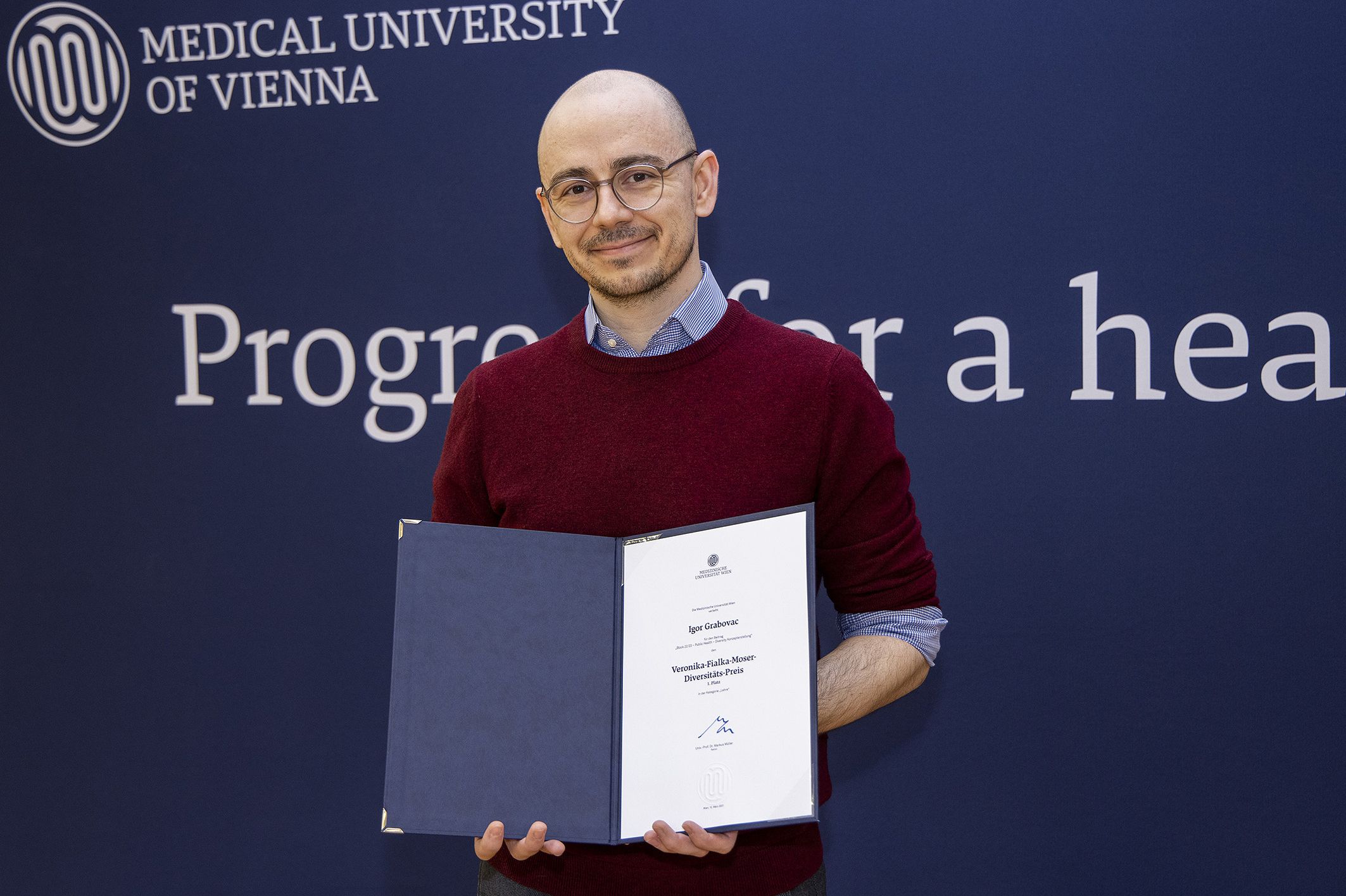
First place: Igor Grabovac
Block 22/23 – Public Health – Diversity conceptualisation
Block 22/23 - "Public Health" is part of the compulsory curriculum for students in their seventh semester of Human Medicine at the Medical University of Vienna. With topics ranging from healthcare systems through to preventive medicine, the main aim of the new Diversity concept in "Public Health" is to teach students more about key concepts of diversity and to work out how these impact on health, what role diversity plays in the treatment and care of patients and what role doctors play in their communities. The teaching block aims to provide students with tools that will enable them to identify problems associated with diversity. The students will also be shown how they can combat stigma and discrimination in their own daily practice, for example, and also on a wider societal level.
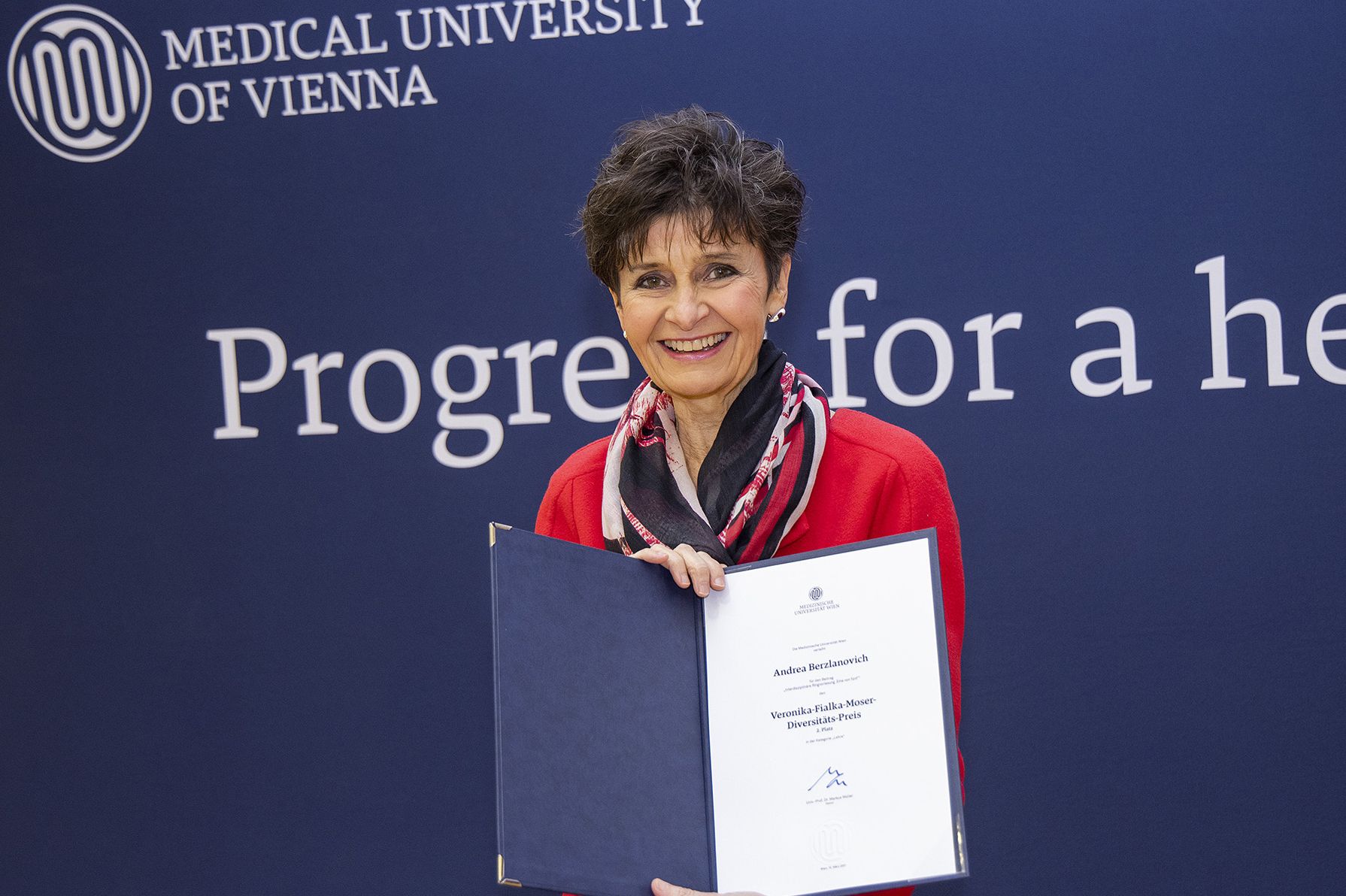
Second place: Andrea Berzlanovich
Interdisciplinary lecture series "One in Five"
The interdisciplinary lecture series "One in Five" has now been held for more than 11 years – on alternating themes – at the Medical University of Vienna's Center for Forensic Medicine together with the Association of Autonomous Austrian Women's Shelters (AÖF), and also in collaboration with the Ombudsman Board since 2016. The main aims of this course are to raise awareness and impart information about the taboo subject of "gender-based violence" and to answer questions such as "How do I recognise violence?", "How do I respond to violence?", "How do I record the consequences of violence in a form that can be used in court?" and "How can I help to prevent further acts of violence?" – all questions that are not only essential for providing appropriate medical care to victims but also for the prevention of violent crime in the future. Furthermore, it is hoped those who attend the lecture series can be recruited to address violence and the resultant health problems in the scientific context. Target groups are future doctors but also students and professionals from other disciplines, such as psychology, education, legal and nursing sciences, sociology and international development.
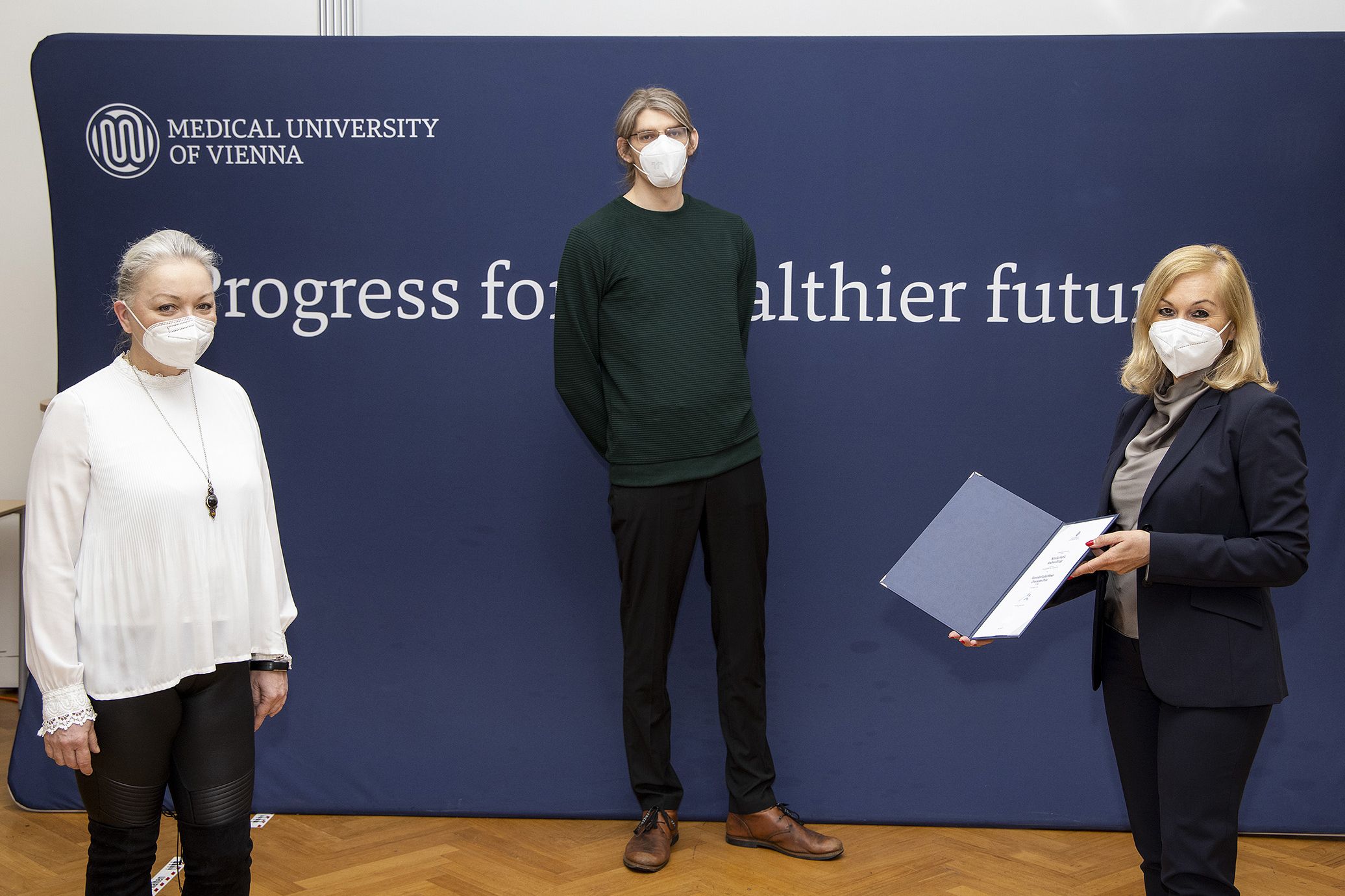
Third place: Natalija Frank, Andreas Ronge
University course in Study Management MSc
The Medical University of Vienna started running the MSc course in Study Management in the autumn of 2018. Employees working in clinical research, who conduct studies independently and to a large extent autonomously, albeit under the supervision of the (Principal) Investigators, are known as "study staff". Hitherto there has being little or no officially recognised training available in this area, leading to uncertainty in the terms of employment, in most cases to low pay and frequently to overloading of staff, due to poorly defined areas of responsibility. Study Nurses (male/female) are largely – but not exclusively – recruited from the nursing sector and, because of this, the profession is largely dominated by women. The course offers everyone working in this area access to academic and officially recognised training, thereby contributing to the (self)empowerment of employees. The course pursues both short-term goals that are of immediate benefit to the individual participants but also longer-term goals relating to the structure of the profession. On an individual level, the students gain a science-based background and hard skills and soft skills to enable them to survive in the world of clinical research. In the longer term and more on the "structural level", the profession of Study Coordinator should be made more visible and rights and duties should be clearly defined.
